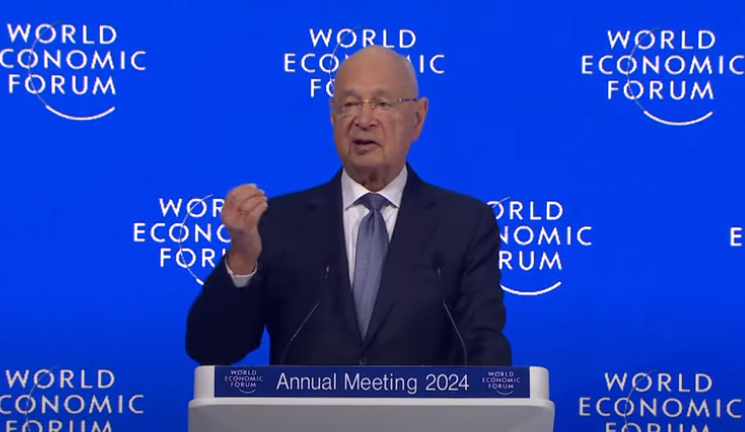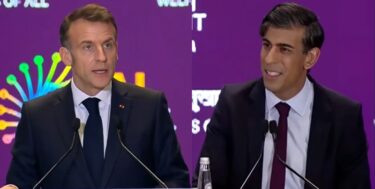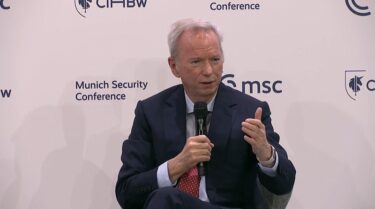The architects of the great reset are resetting themselves: Who will be the WEF figurehead after Schwab? perspective
As World Economic Forum founder (WEF) Klaus Schwab steps away from his executive chairman role to become Chairman of the Board of Trustees, the WEF says the forum’s executive responsibilities will be run by a president and managing board.
Instead of being the executive chairman of the WEF, Schwab will become Chairman of the Board of Trustees, which consists of some of the most powerful people on the planet.
In this way, Schwab may be just as influential within the organization as before, but from the shadows.
“By January 2025, Klaus Schwab will transition from Executive Chairman to Chairman of the Board of Trustees”
World Economic Forum, Institutional Update, May 21, 2024
Following yesterday’s news that Schwab was relinquishing his role as executive chairman of the WEF by January 2025, rumors swirled around social media about his potential successor.
Names like Tony Blair, Yuval Noah Harari, and others began to pop-up, but no one has officially been named as of yet.
However, on May 21, the WEF issued an “Institutional Update” on its Agenda blog, stating that a “president and managing board” will “assume full executive responsibility.”
“The organization has also been undergoing a planned governance evolution from a founder-managed organization to one where a President and Managing Board assume full executive responsibility”
World Economic Forum, Institutional Update, May 21, 2024
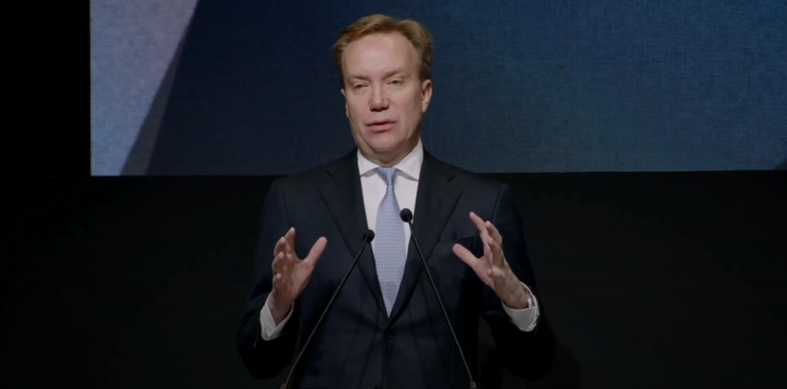
The current WEF president is former Norwegian MP Børge Brende. He is also the chair of the managing board.
If Brende keeps his position as president, then he may be the new face and voice of the organization, which has been pivoting “from a convening platform to the leading global institution for public-private collaboration” for almost a decade.
However, executive decisions will not be placed on a single individual but will include a managing board as well.
The current managing board consists of seven WEF managing directors:
- Børge Brende
- Jeremy Jurgens
- Olivier M. Schwab
- Alois Zwinggi
- Mirek Dusek
- Gim Huay Neo
- Saadia Zahidi
But what does this all mean for the future of the WEF? Does it signal a downfall, a change in policy, or simply a changing of the guard?
We may not have the Bond villain-like character spouting plans for world domination via a great reset in a thick German accent at the forefront, but it looks to be that the policies will remain the same, even if we get someone as painfully boring to listen to as Brende.
We’d still get the same technocratic agenda — just brought to us with a yawn.
As the Institutional Update states, the WEF will still pursue public-private partnerships, which is the merger of corporation and state — better known as corporatism or fascism — and the various annual meetings are still going on as scheduled.
“The Forum’s prominent Board of Trustees will be organized around four strategic committees to further reinforce the impact of our work“
World Economic Forum, Institutional Update, May 21, 2024
The full Institutional Update reads as follows:
“Since 2015, the World Economic Forum has been transforming from a convening platform to the leading global institution for public-private cooperation.
“As part of that transformation, the organization has also been undergoing a planned governance evolution from a founder-managed organization to one where a President and Managing Board assume full executive responsibility.
“By January 2025, Klaus Schwab will transition from Executive Chairman to Chairman of the Board of Trustees.
“In addition, the Forum’s prominent Board of Trustees will be organized around four strategic committees to further reinforce the impact of our work.
“These shifts underscore our institutional continuity in providing an independent and impartial platform to address the complex challenges of an interconnected world.”
“As trustees of the future, we are responsible for advancing a world which is richer in possibilities, more equitable in opportunities, and more secure in its foundations. Moreover, as leaders in government, business, and society, we bear a particular responsibility to rebuild trust in how we assume our own role as trustees“
Klaus Schwab, World Economic Forum, 2024
Starting in January, 2025 Schwab will be the Chairman of the Board of Trustees, so he will still play an influential role from behind the scenes.
The board of trustees includes major names in business, government, and academia, and they are all listed in the images below.
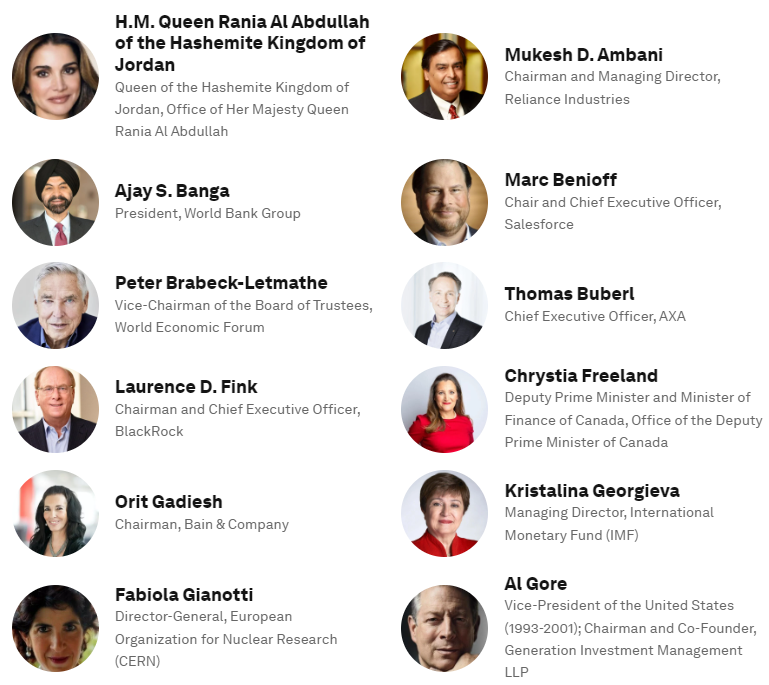
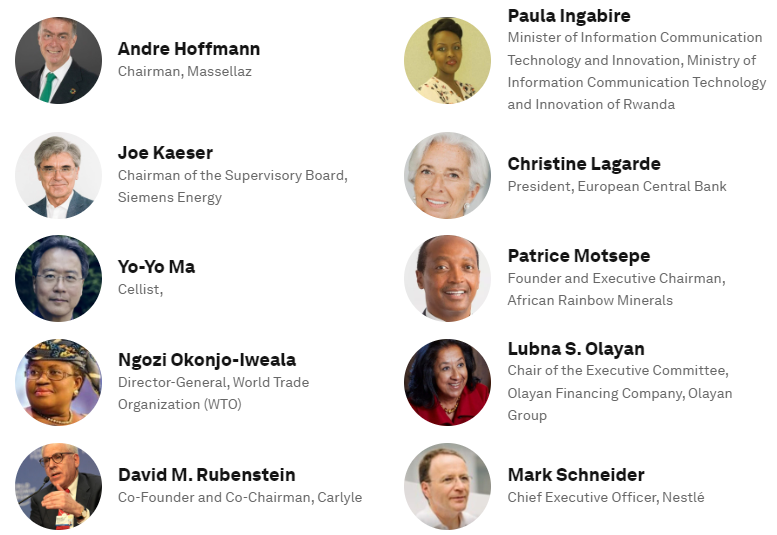
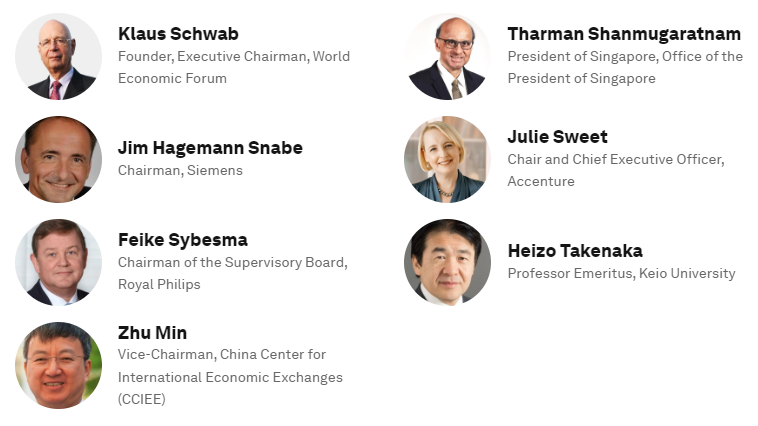
“To rebuild trust, there’s a fundamental need to embody trusteeship, which means to care for the greater good. Let’s use this annual meeting to rebuild trust by exercising our trusteeship individually and collectively for safeguarding the future of humanity and nature“
Klaus Schwab, World Economic Forum, 2024
At this year’s annual WEF meeting in January, Schwab appointed himself and the Davos crowd as “trustees of the future.”
“As trustees of the future, we are responsible for advancing a world which is richer in possibilities, more equitable in opportunities, and more secure in its foundations. Moreover, as leaders in government, business, and society, we bear a particular responsibility to rebuild trust in how we assume our own role as trustees,” he said.
A month later, Brende spoke the WEF’s inaugural TradeTech Forum in Abu Dhabi, UAE, where he praised India’s digital identity system, Aadhaar, as a key to unlocking economic growth.
“India is growing this year, we think, more than seven percent […] They were very well-positioned in a situation where now digital trade and services do grow much faster […] They started with something that was a key for unlocking this — the digital IDs“
WEF President Børge Brende, TradeTech Forum, February 2024
“India is growing this year, we think, more than seven percent […] They were very well-positioned in a situation where now digital trade and services do grow much faster […] They started with something that was a key for unlocking this — the digital IDs,” said Brende.
“So, as we know 1.4 billion people all have their unique digital ID, so when a grandmother in Assam wires money on her cell to her grandson or grand daughter in Delhi, it’s not a problem, and it’s happening every day,” he added.
With Schwab stepping down from his role as executive chairman, it looks as though Brende is the most likely candidate to fill a bit of his shoes, but not completely.
The real power will likely reside with the public-private heads that make up the board of trustees, with Schwab as the chairman.



